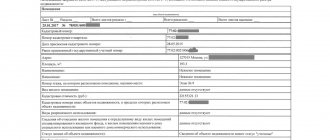Anastasia Zhukova, head of the legal arbitration practice, answers:
A non-privatized apartment can be temporarily rented out under a contract. In this case, the parties enter into an apartment sublease agreement. The possibility of concluding such an agreement is provided for in Article 67 of the Housing Code of the Russian Federation and Article 685 of the Civil Code of the Russian Federation.
An apartment sublease agreement has three key features. They are determined by the specific legal nature of the social tenancy agreement: unlike the lessor, under the lease agreement the tenant is not the owner of the apartment. He only has the right to own and use the apartment. He has the right to use such an apartment only for living in it. That is, the tenant under a social tenancy agreement does not have the right to dispose of the apartment at his own discretion.
Instructions: how to register a rental agreement
Answers to the 5 most frequently asked questions about renting a home
The first feature: in order to conclude a sublease agreement, the tenant of the apartment must obtain the written consent of the landlord. As a rule, the period for obtaining such consent is one month.
Let me remind you that the landlord when concluding a social tenancy agreement is, as a rule, the state represented by local authorities authorized to act on its behalf and enter into contracts with tenants. For example, in Moscow this is the Department of City Property.
The second feature of an apartment sublease agreement is the need to obtain the consent of all adult members of the tenant’s family, as well as the consent of the legal representatives of minor citizens registered in the apartment that is being subleased. Such consent is drawn up in notarial form or the specified persons are required to be present in person at the time of conclusion of the agreement.
In any case, the tenant of the apartment under the social tenancy agreement remains the responsible person to the landlord.
The third feature: when concluding a contract, it is necessary to fulfill the legal requirements regarding the norm of the total area of living space per person. That is, if the tenant has an apartment with an area of 35 square meters. meters, he has no right to move five people into it at once.
An apartment sublease agreement, just like a lease agreement, is paid. The contract specifies the amount of the monthly sublease payment, the procedure for its payment, and the procedure for paying for utilities.
The term of the sublease agreement is determined by the parties themselves. It must not exceed the term of the rental agreement. If the term is not specified in the contract, then the contract is considered to be concluded for one year.
It should be noted that the sublease agreement has a special procedure for concluding. In each subject, the authorized body draws up and registers sublease agreements. So, in Moscow it is the State Unitary Enterprise “Moscow City Center for Rental Housing”, in St. Petersburg it is the St. Petersburg State Budgetary Institution “Gorzhilobmen”. When drawing up the contract, the tenant and the citizen-subtenant moving into the apartment must be present.
Thus, it is possible to rent out a non-privatized apartment, but the procedure for drawing up a sublease agreement is quite lengthy and labor-intensive and requires mandatory notification and obtaining the landlord’s consent to rent out the apartment.
3 ways to legally rent out an apartment
7 mandatory points in a rental agreement
How to conclude a sublease agreement?
If you want to rent out an apartment that is in social rent, you need to enter into a sublease agreement. This requires the consent of everyone who lives in the apartment and the owner - that is, the Moscow City Property Department.
How to draw up a sublease agreement for municipal or public housing. What documents are needed to draw up a sublease agreement?
Who can draw up a sublease agreement?
The tenant of municipal and state-owned housing has the right to sublease part of the residential premises or all of the residential premises (in case of temporary departure). This requires the consent of all family members living with him, as well as the consent of the landlord (Department of City Property of the City of Moscow).
To sublease residential premises in a communal apartment, you must obtain the consent of all tenants and owners and members of their families living with them.
What conditions must be met to conclude a sublease agreement?
A sublease agreement can be concluded only on the condition that after its conclusion, the total housing area per resident will be at least 10 square meters in a separate apartment, and at least 18 square meters in a communal apartment.
What documents are needed to conclude a contract?
To complete the contract you will need:
- identity documents of the tenant, citizens living with him, persons being moved in, as well as birth certificates of minor children;
- a single housing document for the residential premises provided for sublease or documents replacing it;
- an original copy of the social tenancy agreement, the rental of residential premises provided for sublease;
- written notarized consent of all adult citizens registered at the place of residence in the residential premises;
- written notarized consent of the legal representatives of all minor citizens registered at the place of residence in the residential premises.
CENTURY 21 Russia lawyer Damir Khakimov answers:
A non-privatized apartment is owned by its owners on the basis of a social tenancy agreement. The Housing Code (Articles 76-79) provides for the possibility of concluding a sublease agreement, that is, granting the right to live in an apartment to third parties - subtenants - for a fee. The terms of the sublease agreement are determined by the parties independently. However, it is important to comply with the following legal requirements:
- The landlord (administration - owner of the apartment) must agree to subletting. One copy of the agreement is provided to the lessor.
- All moving-in persons must be specified in the contract. Among them there should not be persons with socially dangerous diseases.
- The housing registration norm for a given area should not be violated.
Rights of the tenant and residents
Since the spring of 2005, written agreements have been mandatory. In particular, old orders are being reissued. Such documents describe in detail:
- rights and obligations of the parties;
- terms of payment for housing under a social rental agreement;
- penalties.
General rules establish that it is mandatory to obtain the consent of other residents. The municipality has the right to establish individual restrictions, guided by sanitary standards for area per person. Without additional permits, the procedure is performed to register minor children in a non-privatized apartment at the parents’ place of residence. Similar benefits apply when it comes to close relatives. Unlawful actions of performers can be protested in court.
In accordance with the basic rules of a standard social tenancy agreement, responsibilities apply equally to the responsible tenant along with family members. It is understood that even in the case of long-term absence of residents, timely payment of housing and communal services is necessary. It is permissible to collect debt in court with fines and compensation for associated costs. A delay of more than six months is sufficient grounds for forced eviction.
We invite you to familiarize yourself with: Specialty “Legal support of national security”: universities and professions
It is recommended to clarify the actual terms and conditions in the text of the contract. Thus, the landlord is obliged to notify in advance about the change:
- tariffs;
- payment procedure;
- standards for the consumption of energy and other resources.
Repair issues
A significant advantage of living under a social tenancy agreement is the absence of responsibilities for maintaining common property. Major repairs are carried out by the municipality at its own expense. If these obligations are violated, the residents of the apartment (house) file a complaint with the housing commission and the prosecutor's office.
Tenants are required to independently carry out routine repair work in the premises received under the contract. However, in addition to redevelopment, any significant changes to general and local engineering systems are prohibited. If the heating radiator is damaged, it must be restored (replaced) independently. To move partitions, it is necessary to fix the new configuration of rooms in technical terms in agreement with the municipality. A similar permit will be needed to replace an electric stove with a gas one.
Some landlords list in the contract the permissible independent actions of tenants (example):
- painting walls, creating other decorative and protective coatings;
- installation of lamps, sockets and switches;
- repair and replacement of faucets;
- installation of new door and window units.
The rights of a tenant in a non-privatized apartment are supplemented by certain responsibilities. The employer must:
- maintain good sanitary and technical condition of the property transferred to him;
- ensure free access for maintenance personnel and authorized administration employees for maintenance and control checks;
- promptly inform responsible officials about identified construction defects and emergency situations.
According to standard conditions, upon termination of a social tenancy agreement, the non-privatized apartment must be returned to the owner in a condition suitable for habitation. You will have to pay for damaged equipment and restoration work. For a comparative assessment, you can use the transfer and acceptance certificate signed upon receipt of housing.
To generate additional income, you can rent out a non-privatized apartment to third parties. To complete the transaction correctly, you need permission from other residents and the municipality. It should be emphasized that such an action does not relieve the responsible tenant and his family members from fulfilling their obligations under the main contract.
Is it possible to rent out a non-privatized apartment without approval? The correct answer depends on the initial conditions. In this case, notarization of the agreement is not required. If the transaction is free of charge, it can be concluded orally. If the period does not exceed 12 months, registration with Rosreestr is not required.
Is it possible to rent out real estate for a fee to strangers without undue risk? For an objective assessment, it is recommended to take into account:
- the need to pay tax on income received;
- possibility of verification by the municipality;
- lack of constant monitoring of the condition of the property.
If significant violations are detected, the owner has the right to terminate the social tenancy agreement. If neighbors report hidden profits to the Federal Tax Service, you will have to pay a large fine in addition to personal income tax.
Sharing an apartment requires following certain rules. In some situations, it does not matter who owns the property. It is necessary to respect the legal rights of residents:
- ensure freedom of passage and silence at night;
- do not impede the use of common premises.
We invite you to read: The management company was obliged to enter into an agreement with a resource supply organization – Housing and Communal Services News
It is necessary to preserve the intended purpose of the apartment. It is prohibited to use the property for commercial or social activities. It is forbidden to create warehouses, production facilities, or workshops in living rooms.
The municipality has the right to establish additional restrictions for buildings located near highways classified as objects of historical value. In particular, visible changes to facades are prohibited:
- glazing of balconies and loggias;
- installation of external units of air conditioners and satellite antennas;
- installation of window frames that do not match the color of a specific design.
Kirill Kokorin, Leading Legal Advisor at the INCOM-Real Estate legal service, answers:
A citizen of the Russian Federation who occupies residential premises on the basis of a social tenancy agreement may transfer his premises for use to third parties under a sublease agreement. Such an agreement is permitted by the legislation of the Russian Federation and is concluded with the consent of the owner of the residential premises or a person authorized by the owner of the relevant housing stock.
The content of a sublease agreement is no different from a regular lease agreement, with the exception of the terminology, according to which the owner of the apartment will be named as the “Tenant”, and the tenant will be called as follows - “Subtenant”. A sublease agreement, like a rental agreement, is paid: one party receives income, and the other has the opportunity to freely live and use residential premises for a fee.
How much can you earn from renting real estate?
Rent tax: options for those who rent out an apartment
Where to submit documents?
The Moscow City Center for Rental Housing is responsible for drawing up sublease agreements. This service is paid. When drawing up the contract, the tenant of the property and the moving-in citizen (subtenant), as well as all adult residents and legal representatives of minors, must be present, if their notarized consent is not available.
How long does a sublease agreement last?
The agreement is concluded for a period determined by agreement of the parties, but not more than five years. If the contract does not specify a term, it is considered to be concluded for one year.NULL
The head of the legal support department, Ksenia Buslaeva, answers:
Formally, a sublease agreement (what is commonly called sublease in the market - rent from a tenant) is not prohibited by law. But to register it, you will need to meet a number of conditions and take into account restrictions.
Firstly, the owner of a non-privatized apartment is the municipality. His consent to draw up the contract will be required, and for this, in turn, the consent of all other residents of the apartment. Secondly, the tenant under the sublease agreement will not receive the right to dispose of the apartment and, therefore, will not be responsible for the property; all risks will officially be assumed by the responsible tenant. Thirdly, after the subtenant moves in, the apartment must maintain an area of at least 10 square meters. meters for each resident. It is also prohibited to move in a tenant whose illness makes it impossible to live with him.
How to rent out an apartment
All utilities under Article 678 of the Civil Code of the Russian Federation are paid by the tenant. The agreement can focus on this and fix the tenant’s obligation to pay for utilities separately. But you must clearly monitor the payment process, since all claims from utility services will be directed at you.
This is important to know: OKVED 2021: leasing your own real estate
A privatized apartment is an apartment that is your property. According to paragraph 2 of Article 35 of the Constitution of the Russian Federation, as well as paragraph 2 of Article 209 of the Civil Code of the Russian Federation, any citizen has the right to dispose of his property at will. It follows from this that if you are the owner of your apartment, then you have the legal right to decide to whom and at what price to rent out your apartment.
What laws govern it?
The main points are established in Article No. 685 of the Civil Code of the Russian Federation. The rules and regulations are outlined in more detail in the Housing Code, Articles No. 76-79:
- The terms, conditions, as well as the rules for drawing up the agreement are stipulated in Article 77 of the Housing Code.
- The standard for square meters is established in Article 76 of the Housing Code.
- Article 78 of the Housing Code states that such an agreement can be concluded on a reimbursable basis.
- All points on which the contract can be terminated are considered in Article 79 of the LC.
- The very possibility of renting out municipal housing is stipulated in Article 81 of the Housing Code.
- The list of diseases of residents that may prevent the conclusion of a sublease agreement is indicated in Article 51 of the Housing Code.
This is important to know: Deposit in a lease agreement for non-residential premises








